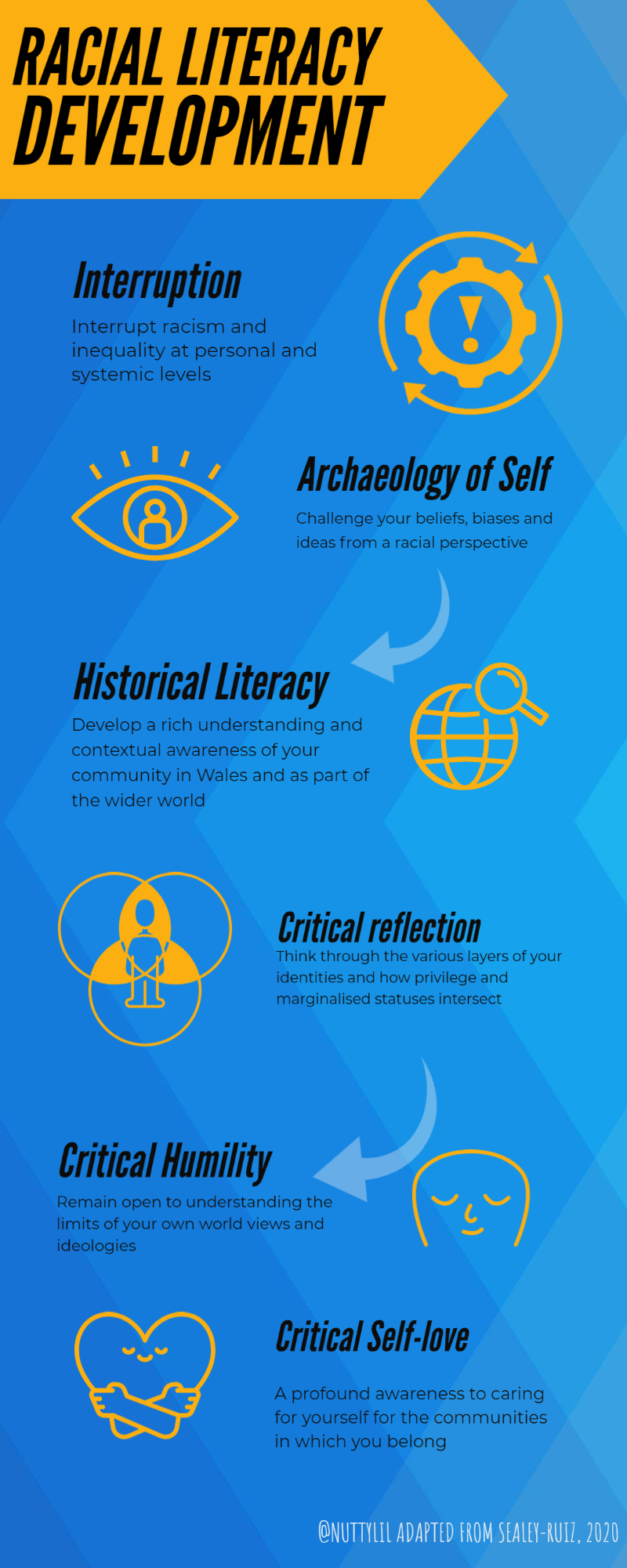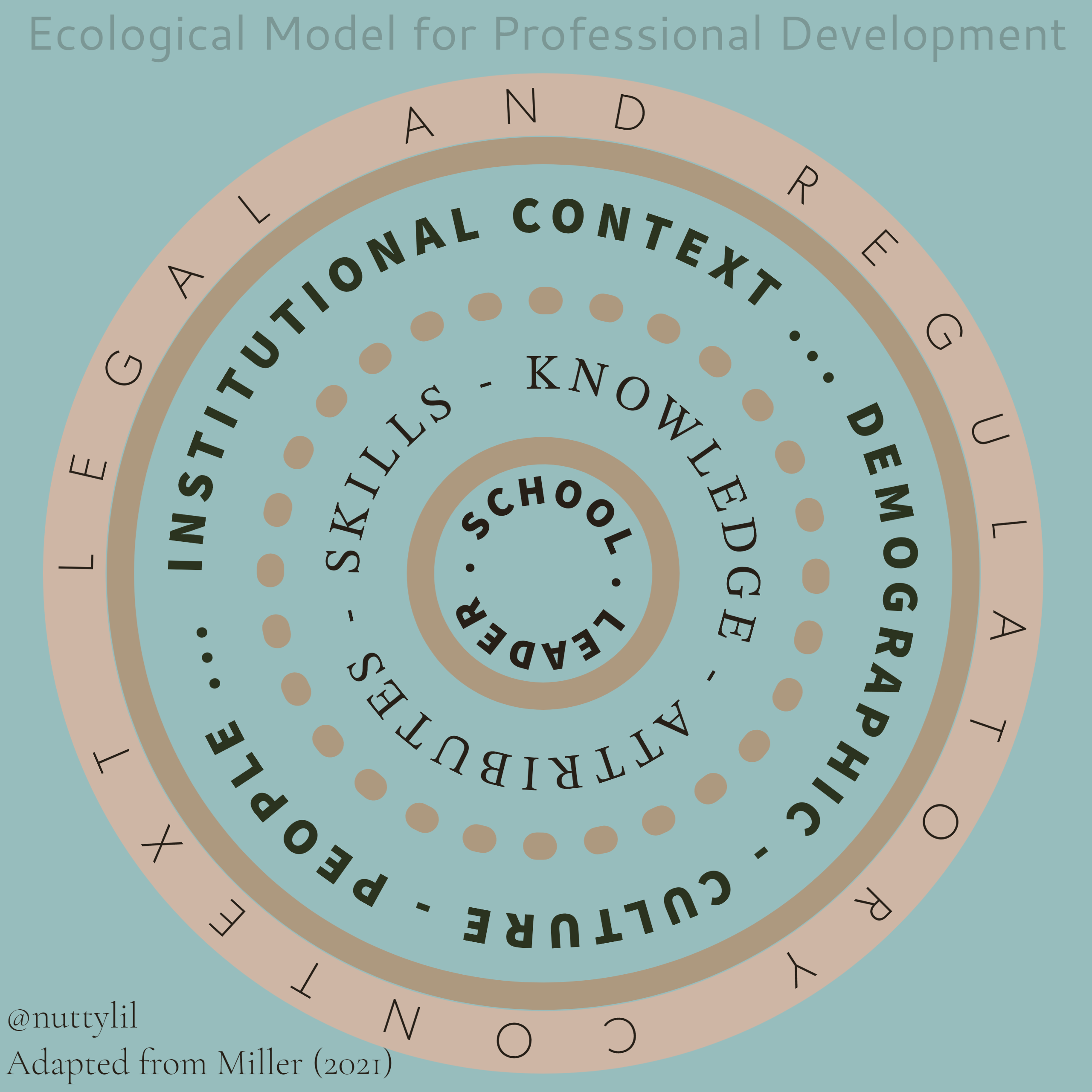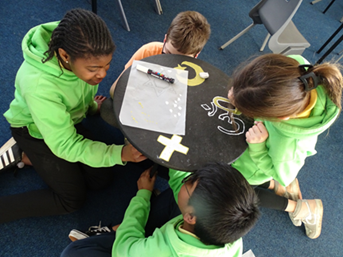 In 2021, Welsh Government accepted all 51 recommendations of the Williams review1, with five focused on Initial Teacher Education (ITE) and eight for schools. The Athrofa Professional Learning Partnership (APLP), a collaboration between schools and University of Wales Trinity Saint David (UWTSD), is crucial in delivering ITE to numerous aspiring teachers across south and west Wales. In response to the Williams review, the APLP has taken significant steps to address the recommendations and foster an anti-racist experience.
In 2021, Welsh Government accepted all 51 recommendations of the Williams review1, with five focused on Initial Teacher Education (ITE) and eight for schools. The Athrofa Professional Learning Partnership (APLP), a collaboration between schools and University of Wales Trinity Saint David (UWTSD), is crucial in delivering ITE to numerous aspiring teachers across south and west Wales. In response to the Williams review, the APLP has taken significant steps to address the recommendations and foster an anti-racist experience.
This blog explores the progress made by the APLP, considering perspectives from both the University, and the schools involved. It highlights ongoing efforts to meet the recommendations, and contribute to an inclusive and equitable education system.
What we did in the University
The APLP holds social justice as a foundational principle, driving our commitment to enhance representation, evaluate the effectiveness of diversity education, and promote anti-racist training within our programs. In line with the recommendations of the Williams review, our aim is to equip students with the ability to engage critically in discussions surrounding social justice and diversity. We collaborate closely with partners to ensure the provision of high-quality anti-racist training. To accomplish this, we have developed a strategic plan that carefully considers the complexities of fostering an inclusive environment.
When it comes to establishing leadership in equity, diversity, and inclusion, it is important to approach the matter with thoughtfulness. While it may seem intuitive to assign a member of staff from the black, Asian, and minority ethnic community to lead this effort, we must all shoulder the responsibility of challenging our colleagues and initiating change. Therefore, strategic leadership of the anti-racist agenda is entrusted to a white colleague who serves as a valuable ally in this endeavour.
Recognising that professional learning is essential, we sought external expertise to develop our racial literacy. This training has empowered us to question the Eurocentric bias within the school curriculum, and incorporate non-white perspectives. As a result of our unified strategic approach, anti-racist themes have been woven into each module across our programs and reviewed annually. The infographic is a visual representation of the racial literacy journey and how the APLP has interrupted racism and inequality at systemic levels. It also recognises how much more we have to do.
A school leadership approach
St Thomas Community Primary School is a leading school in the APLP and is a racially diverse inner-city school in Swansea. The headteacher took a strategic approach to anti-racism by implementing the recommendations in the Williams review, including making anti-racist strategic priorities in their school development plan. This motivated the senior team to examine the privilege afforded by skin colour and racial stereotypes to design a curriculum for the diverse community it serves – real inclusion for all. At the time this intervention was implemented, the diversity and anti-racism professional learning provision had not been launched. Sourcing the professional learning would have been a barrier, but this is now freely available to all schools asynchronously and decreases the barrier to anti-racist engagement. It is recognised that talking about race is not a cultural norm, as society is reportedly racially colour-blind, it avoids talking about race and recognising racial differences (Sue, 2015). Therefore, the trust afforded to the headteacher to challenge unconscious bias was valued and appreciated.

In the subsequent planning, the headteacher actively avoided tokenistic approaches, and favoured embedding permanent change in every aspect of the school experience. This included making anti-racism part of a leadership role in the school to raise the profile and accountability for anti-racist interventions. Moreover, anti-racism spokespersons, under the heading of diversity, were assigned to curriculum planning teams. This was to ensure that all areas of learning and experience from a multicultural perspective were included, so that all the children, and their background, were part of their curriculum. Furthermore, they held a workshop for parents focusing on diversity, and often have parents or children to share their cultural backgrounds in class. An impact has been introducing a prayer space in school, for all children to use, following a suggestion from a family member.
Tackling racism has to be a whole school approach, led strategically by the senior leaders within the organization. However, to embark on it fully, we have to acknowledge our own privilege and open our eyes to the unconscious bias that permeates society. Only then can we really begin to understand how discrimination affects those who experience it, and by doing so, make real changes towards real inclusivity.
Russ Dwyer, Headteacher, St Thomas Community Primary School
Clase School’s approach
Clase Primary School in Swansea attended an anti-racism conference and took on the challenge of promoting racial diversity and inclusion in their school. As a result, they appointed some pupils as Diversity Ambassadors to promote ‘cynefin’ within their school community.

They created a display board where students can share their thoughts and experiences related to promoting belonging and inclusion. In addition, they have developed a program called ‘Celebrating Diversity’, which includes a range of activities such as learning about different cultures and religions and inviting guest speakers to talk to students about their experiences. They also developed links with St Thomas Community Primary School and received funding from Partneriaeth to plan a way forward together across the schools.

Diversity ambassadors in action.

Concluding thoughts
Each educational institution played an active role in supporting anti-racism. For example, the APLP embedded anti-racist curriculum and pedagogy in all their modules, running anti-racist professional learning, and partnering with schools that exemplify an anti-racist mind-set. Additionally, Clase Primary School and St Thomas Community Primary School demonstrate how achievable it is to create a more diverse and inclusive learning environment. Each required the development of racial literacy to create purposeful anti-racist opportunities and found strength by collaborating with partners. If you are just starting your journey, remember that you are not alone. Reach out and maximise your network as part of schools as learning organisations and create safe spaces to build your racial literacy.
by
Lilian Yuet Ling Martin.
In collaboration with Amanda Thomas (Clase Primary School, and Russ Dwyer (St Thomas Community Primary School)
About the blogger
Lilian Yuet Ling Martin is an APLP strategic lead, an anti-racist educator and a Welsh Government funded researcher evaluating the Williams review.
[1] Black, Asian and Minority Ethnic Communities, Contributions and Cynefin in the New Curriculum Working Group: final report

